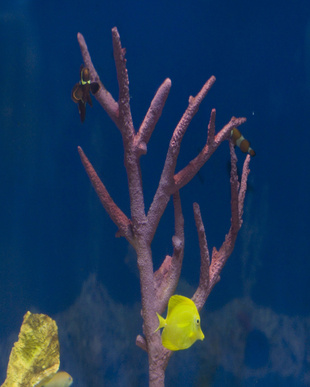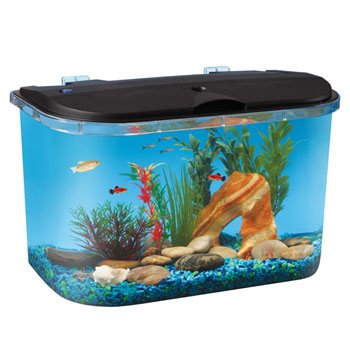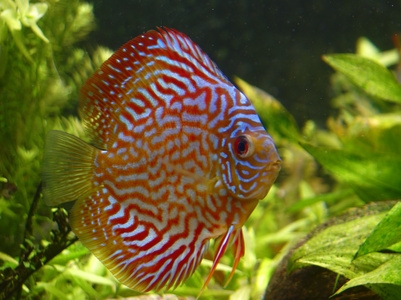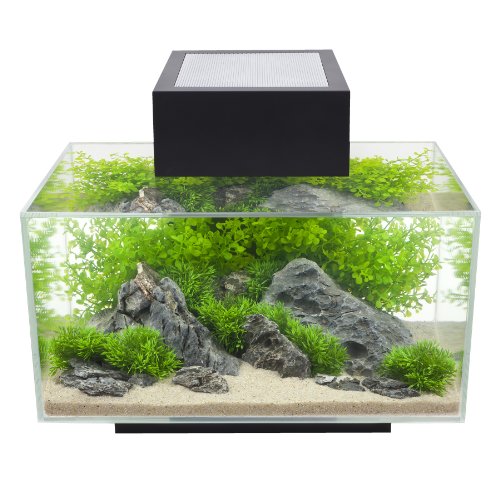At the height of the flea season, you’ll want to protect your dogs, cats and household from the pesky flea. But, don’t do so at the expense of the health of your pets. There are better methods other than what mass marketing has conditioned us to reach for.
Use non-toxic natural flea protection solutions. That means no flea powders, sprays, collars, shampoos, and dips that are toxic and harmful to your pet; including the newer products that are given by pill or applied to a spot on the skin. Despite the manufacturers' claims of safety, these solutions do not offer natural flea protection, and many problems, some quite serious, have been observed with these products. Why risk the health of your pet?
Many flea products on the market are not considered natural protection against fleas. Most of these products are in fact dangerous chemicals that you would not think of placing on your own body or your children’s. Many people regard their pets as family and we owe it to them not to endanger their health. Dogs and cats entrust their lives to us, their guardians.
Many popularly used products contain ingredients such as carbaryl (Sevin), a nerve-paralyzing chemical that can cause a host of side effects, DDVP (dimethyl dichlorovinyl phosphate), methylcarbamate, rotenone, pyrethrins, and piperonyl butoxide. Piperonyl butoxide is used as a booster in most of the new pyrethrum products. It is associated with liver disorders. DDVP is the chemical found in the majority of plastic flea collars. DDVP numbs an insect's nervous system and, although your dog cannot speak, the chemical can have the same effect on your pet.
Don’t bathe your loved pet in chemical insecticides that suds or agents called flea dip.
You can attain natural flea protection without bathing your pet with a chemical flea shampoo that leaves a petrochemical residue on the dog’s skin, which is potentially unsafe for the canine and the household. Unlike with a more natural flea protection, when the pet licks itself, it gets an oral dose of a toxic chemical. Spraying or dipping with a residual pesticide to rid your dog of fleas has little or no lasting effect. Flea shampoos often only help get rid of fleas from your dog’s fur. If live fleas are in the bath water they can re-infest your pet with a simple splash. Do not allow bath water to accumulate. Regular and proper use of hypoallergenic shampooing and conditioning or a brand name dishwashing liquid will kill fleas on contact and act as a repellent.
The healthier your pet is, the less attractive it is to fleas. Parasites and fleas in particular are attracted to weak, unhealthy or young animals whose immune system is not functioning well. The quality of nutrition is a major factor in achieving natural flea protection. There is ample research showing that fatty acid supplements, in the ideal dietary ratio of 5:1 of omega-6 to omega-3 fatty acids, can be beneficial in pets with atopic dermatitis and flea allergy problems. These supplements are also advocated in cases of kidney disease, elevated cholesterol and arthritis. They are derived from fish oils of coldwater fish such as salmon and trout. Veterinarians are discovering that fatty acids can be valuable for a variety of conditions. Fatty acids are supplied in liquid and capsule form, and are readily available.

 Different Kinds of Fish for Aquariums
Different Kinds of Fish for Aquariums
Different Kinds of Fish for Aquariums
Different Kinds of Fish for Aquariums
 Turtles As Pets
You may not realize just how
Turtles As Pets
You may not realize just how
 Tips for Maintaining a Freshwater Aquarium
Here are a few tips for main
Tips for Maintaining a Freshwater Aquarium
Here are a few tips for main
 Discus Fish Care & Feeding
Discus Fish Care & Feeding
Discus
Discus Fish Care & Feeding
Discus Fish Care & Feeding
Discus
 Setting Up a Saltwater Aquarium
A saltwater aquarium is a lo
Setting Up a Saltwater Aquarium
A saltwater aquarium is a lo